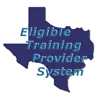Non-destructive testing (NDT) is a method of examining a part or assembly without altering or destroying the test object. It is used extensively in all types of operations requiring the use of machinery and piping systems, such as offshore, refineries, shipbuilding, aviation, and nuclear plants. Since NDT allows the thorough inspection of a component without damaging or altering the integrity of the component, it is a valuable technique that can save time and money in product inspection. Ensuring product reliability in the operation of any component is the goal of NDT, to protect lives and property. The common NDT methods include dye penetrant, eddy current, magnetic particle, radiographic, remote visual inspection, and ultrasonic testing. Nondestructive testing is used to inspect metal components for damage, composition, and
manufacturing defects. Welding is commonly used to join together metal surfaces, and welds are one of the most common NDT test subjects. Cracking due to strain and fatigue are common weld failure modes. NDT methods including radiography, dye penetrant testing, and magnetic particle testing are commonly used for inspection of welds. Metal components are typically subjected to stress from heat and friction. The resultant strain causes microscopic cracking, deformation from the plastic flow, and hardening of metals. Eddy-current and dye penetrant testing are usually used for this testing. During the welding process, the base metal must reach a certain temperature for the weld material to melt and fuse. The weld also must cool at a specific rate, and the base and weld materials must be compatible. Any of these occurrences may induce cracks to form in the weld, causing failure. NDT techniques typically used in welding are radiography, ultrasonic testing, dye penetrant, or eddy current. Identifying hidden weld defects are essential to safe operation of critical components. NDT training can be either employer-based or from an accrediting body. Employer-based training is usually based on SNT-TC-1A of the American Society for Nondestructive Testing or AIA-NAS-410, in the aerospace industry, and NAVSEA 250-1500 in Naval shipbuilding. In addition, the American National Standards Institute (ANSI) Standard CP-189 outlines the requirements for written practices that conform to this standard. AN NDT operator may also obtain third-party training, with certification from a central certification authority, conforming to ISO 17024.
NDT certification schemes conform to three levels of qualification, designated as Levels 1, 2, and 3. Level 1 is qualified to perform work under direct supervision of higher level technicians. Test results may be reported, but no data evaluation may be done by Level 1 technicians. Work is typically done according to specific work instructions. Level 2 technicians are qualified to set up and calibrate testing equipment, conduct testing according to standards, with some flexibility in decision-making, and also to supervise Level technicians. They are also able to interpret and evaluate test results. Level 3 are engineers or experienced technicians who may establish NDT procedures, direct training, and laboratories. They are expected to have a wide knowledge of materials, fabrication, and technology. Progression in certification for each test method requires weeks of classroom training and up to hundreds of hours of on-the-job training.
Online training is an excellent training delivery method, allowing companies in the oil and gas industries, as well as persons interested in training to work in this field, to train personnel on their own timetable, companies wishing to establish or enhance their own NDT program, or persons wishing to make a career change to obtain all necessary training from anywhere in the world. Completion of classroom training, hands-on training, and examinations will lead to certification as a Class 1 or Class 2 NDT Technician. NDT Consultancy Services provides worldwide NDT training, certification, and Level 3 consulting solutions to the Oil and Gas Industry. You may enhance, maintain or upgrade certifications using our eLearning services. Training, consulting, auditing and inspection services are provided by trained, certified and experienced personnel to meet our customers requirements, from anywhere in the world, and at any time. Our current online courses include Eddy Current Testing I and II, Digital Radiographic testing, and Electromagnetic Testing Levels I and II. You will save money by reducing time schedules and downtime. You may start your path to a new career in NDT by training online with Global NDE Guru.For training, certification and consulting needs and for further info visit our website www.ndeguru.com and ndtcs.itcorporates.com




















